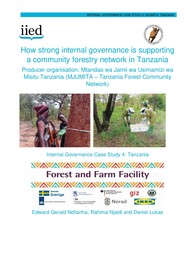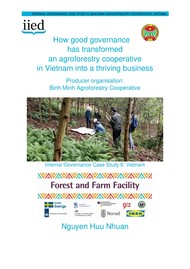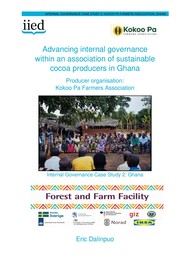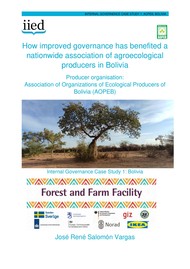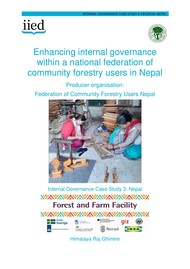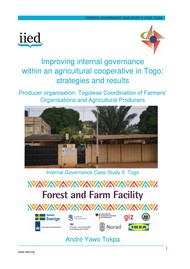Mobilising cooperative capabilities to cope with climate change
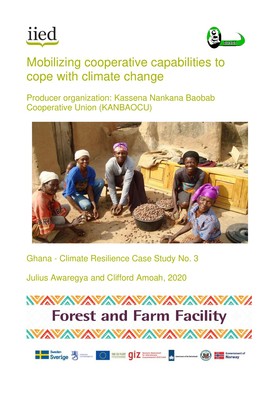
This climate resilience case study (No.3) from Ghana is the third of ten case studies prepared by forest and farm producer organisations (FFPOs) for the Forest and Farm Facility (FFF). It describes the actions of the Kassena Nankana Baobab Cooperative Union (KANBAOCU) in finding nature based solutions (NbS) that give climate resilience.
The KANBAOCU cooperative union serves 175 group enterprise members in seven districts of the Upper East Region of Ghana. Working initially with baobab and shea nut value chains, the union has now diversified into honey and beeswax, sesame, livestock and other tree product value chains such as Parkia, Balanites and Tamarindus. Climate change is bringing more intense weather events to northern Ghana including both wet season floods and dry season heat waves and droughts. KANBAOCU has been helping to ensure community-based adaptation (CbA) through a series of strategic interventions that include: tree planting, training in tree-crop-livestock agroforestry systems, organic composting to improve fertility and soil moisture retention, water harvesting and fallow techniques, horizontal diversification of crops (including drought resistant varieties of millet, cowpeas, Bambara nuts and ground nuts), vertical diversification of value chains through value-added processing, and expansion of village saving and loans schemes to improve investment capabilities.
The case study shows how organisational innovations in second-tier marketing organizations can improve the resilience of smallholder group enterprises based on natural resources.
Cite this publication
Available at https://www.iied.org/13618iied

